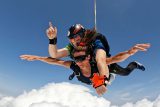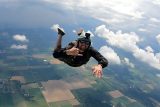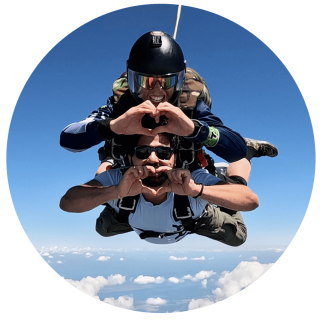How Will Weather Affect My Skydiving Day
DZ News
Posted by: Parachute Ottawa
9 months ago
Deciding to skydive is a big deal! And sometimes getting to that Book Now button requires getting over a few hurdles. For some it’s working up the nerve or saving up the funds; for others it’s sorting out a date that works for a group of people. It seems like booking your jump and marking your calendar makes it all a done deal … but sometimes Mother Nature has other plans.
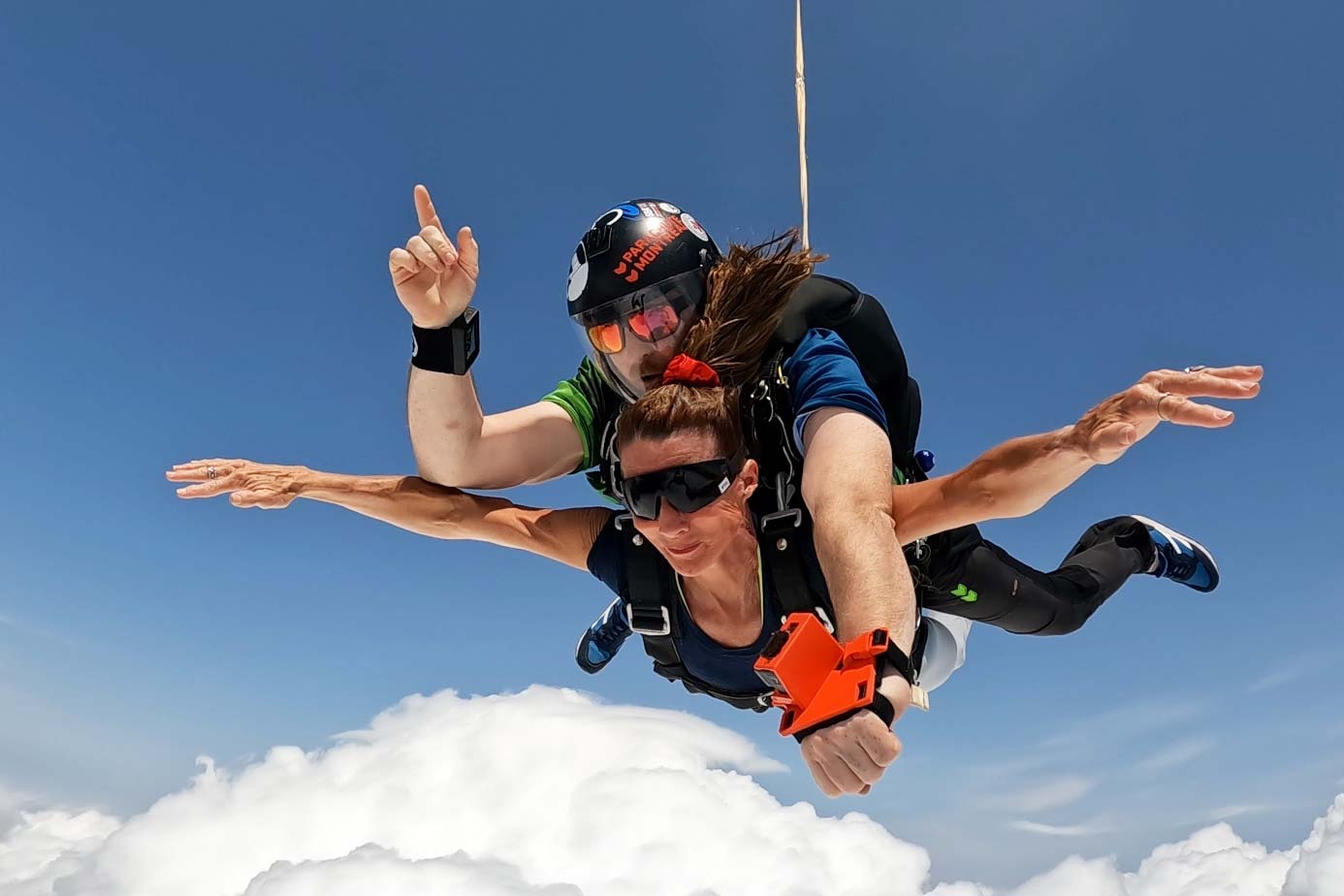
Does weather affect skydiving? Big time. Skydiving weather conditions are one of the most important, and least exciting, parts of making a skydive. We all know to look ahead at the weather forecast when preparing for an adventure outdoors, but meteorologists can only do so much. A scheduled skydive is subject to inclement weather that might roll in at the very last minute.
Let’s get into some questions we frequently hear about skydiving weather, including:
- What weather will cancel a skydive?
- What conditions can you not skydive with?
- Can you skydive when it’s cloudy?
- What are weather holds?
- What is the best month to go skydiving?
- What hour of day is best to skydive?
Read on to get answers to these questions, and more!
Inclement Weather
First things first, let’s talk about inclement weather. What constitutes “inclement weather” to most is not how we categorize it in skydiving terms.
Skydiving when it’s windy, skydiving in the rain, skydiving in clouds, and even skydiving in the extreme cold all make for an undesirable experience and a potentially dangerous situation. At the end of the day, it’s all about safety. Period.
So, what are the best weather conditions for skydiving? A mild, warm, sunny day is prime skydiving weather. That’s why, at least in our area of the world, summer is the busiest season. But not the only season! At Parachute Ottawa, we jump May through October.
Wind
Wind is one of the most frustrating weather issues because it’s the invisible inconvenience. It could be the sunniest, warmest, most beautiful day, but you could still be stuck on the ground because of the wind.
How does windy weather affect skydiving? There are actually two different types of wind that are taken into account when planning a jump: ground winds and upper winds. Each impacts skydivers in different ways, and both must be carefully considered when deciding if it’s safe to jump.
Ground Winds
Ground winds are the most obvious to the non-skydiver and also have the biggest impact on safety. These winds are exactly what they sound like – the wind speed and direction close to the ground. Landing a parachute is very technical, and arguably the most important part of the skydive, so agreeable conditions near the ground are imperative.
If it’s too windy near the ground, the parachute could be blown in a less than ideal direction or even experience dangerous turbulence. Gusty winds or winds that change direction make for an inconsistent descent that will likely end badly. And if the wind speed is around 32 km/h or higher, the parachute could even be pushed backwards!
Ground winds can also cause issues after touchdown by catching the parachute and dragging skydivers across the landing area.
Upper Winds
Upper winds, sometimes called upper-level winds, are as they sound as well. They are winds in the atmosphere above the ground winds and, therefore, not observable or detectable from the ground.
Upper winds are a little bit different because they have more of an impact on the technical planning of the jump. High speed upper winds will cause skydivers to drift longer distances over the ground, so exiting the airplane a safe distance away is imperative.
Given our proximity to both the Madawaska and Ottawa rivers, this could pose a real problem. Landing in water is never a fun time, and we’re extra careful about this in cooler weather. We’ve yet to have an accidental water landing, but cold water would be memorable for all the wrong reasons.
Clouds
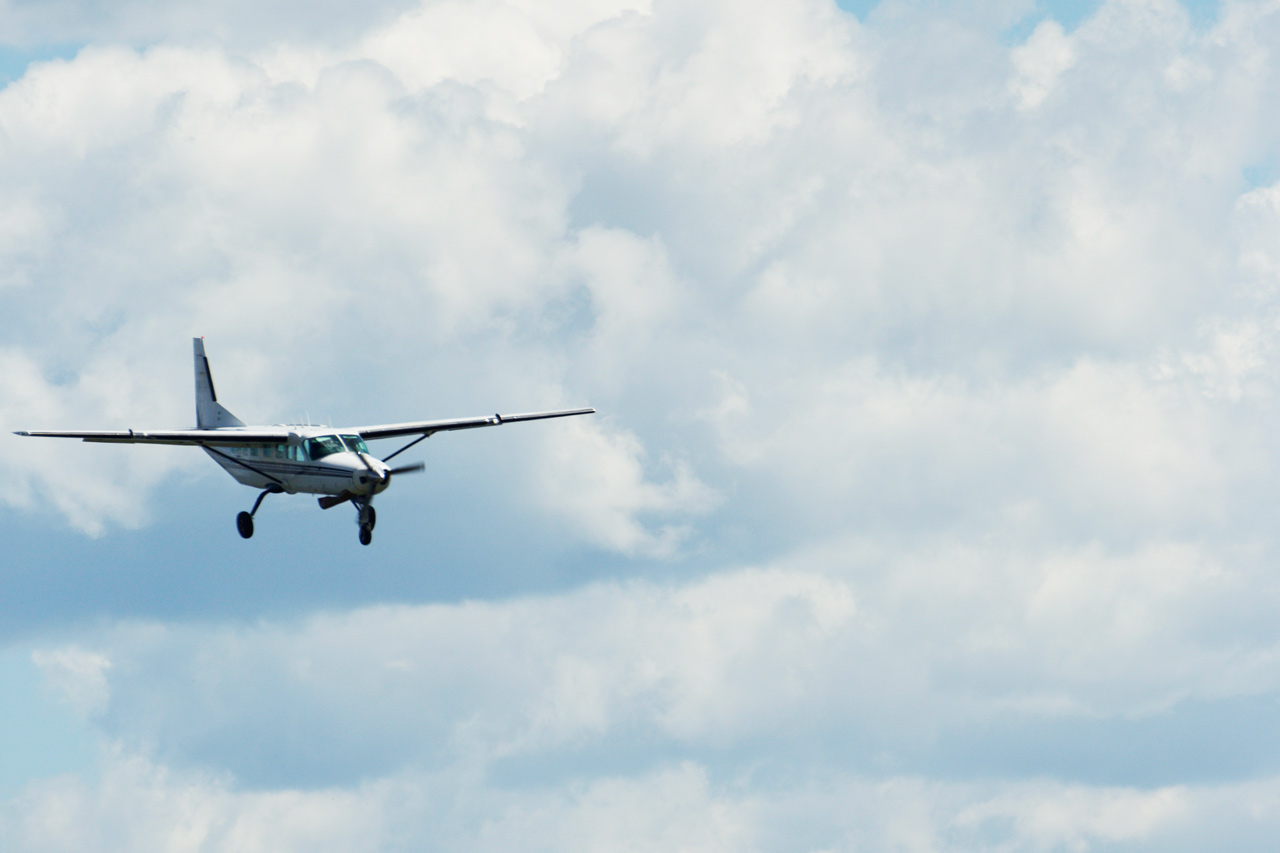
Why can’t you skydive when it’s cloudy? They may look un-threateningly soft and puffy, but the extent to which they can mess up a skydive is often underestimated. Clouds are such a problem that there are actually strict restrictions that determine whether or not you can skydive on a cloudy day.
When there is full cloud coverage over the airport, it’s impossible to see the landing area. The dangers of not knowing where the dropzone is are obvious enough, but there are more potential issues to consider when the clouds roll in. There could be other airplanes below or inside the clouds that the pilot can’t see – or skydivers below or inside you can’t see on exit. An airplane full of people navigating into zero visibility clouds greatly increases the possibility of a mid-air collision.
Does it hurt to skydive through clouds? No, the clouds themselves don’t hurt … but the things that could happen because of clouds certainly do!
Rain
Clouds often come loaded with rain – and the rain itself can be a problem even if there are open spaces between the clouds to jump through.
Water adds an element of risk to an already high-stress situation. Wet goggles make it harder to see, wet hands lose grip, and moisture isn’t good for skydiving gear. Water on the landing area also makes landing a bit more treacherous. Landing a parachute is already a carefully choreographed dance, so there’s no reason to add the element of slippery grass to the process.
Does skydiving in the rain hurt? Yes! Moving through water droplets at nearly 200 kmh feels sort of like being pelted with tiny rubber bullets on any exposed skin (which is typically the very sensitive areas of your face and neck). Skydivers like to joke that it hurts so much because we’re hitting the pointy end of the raindrops!
While rain poses the least amount of immediate danger, it does have the most noticeable physical effect. Skydiving is supposed to be a fun and exciting experience, not painful and uncomfortable. Skydiving in the rain isn’t worth it, even if all of the other weather conditions are cooperating.
If rain is forecasted for the day of your jump, we will contact you with a plan via text or email so stay tuned!!
Unexpected Changes
We all know that weather reports can be wrong or weather conditions can change rapidly. There’s a reason everyone jokes about the weather man having the easiest job. There’s a chance that the forecast could look great before you set off for the dropzone, and by the time you get here it’s turned in such a way that it might be miserable or unsafe for you to jump.
That’s when we go on something called a weather hold. Many a skydiver has spent time hanging out on the ground staring at the sky and waiting for the weather to change. It’s one of the realities of our sport. Luckily, our dropzone is equipped with comfortable and accommodating facilities where you can spend your time praying to the weather gods.
Take it from us, you’d rather be on the ground wishing you were in the sky than in the sky wishing you were on the ground …
The Best time to Skydive
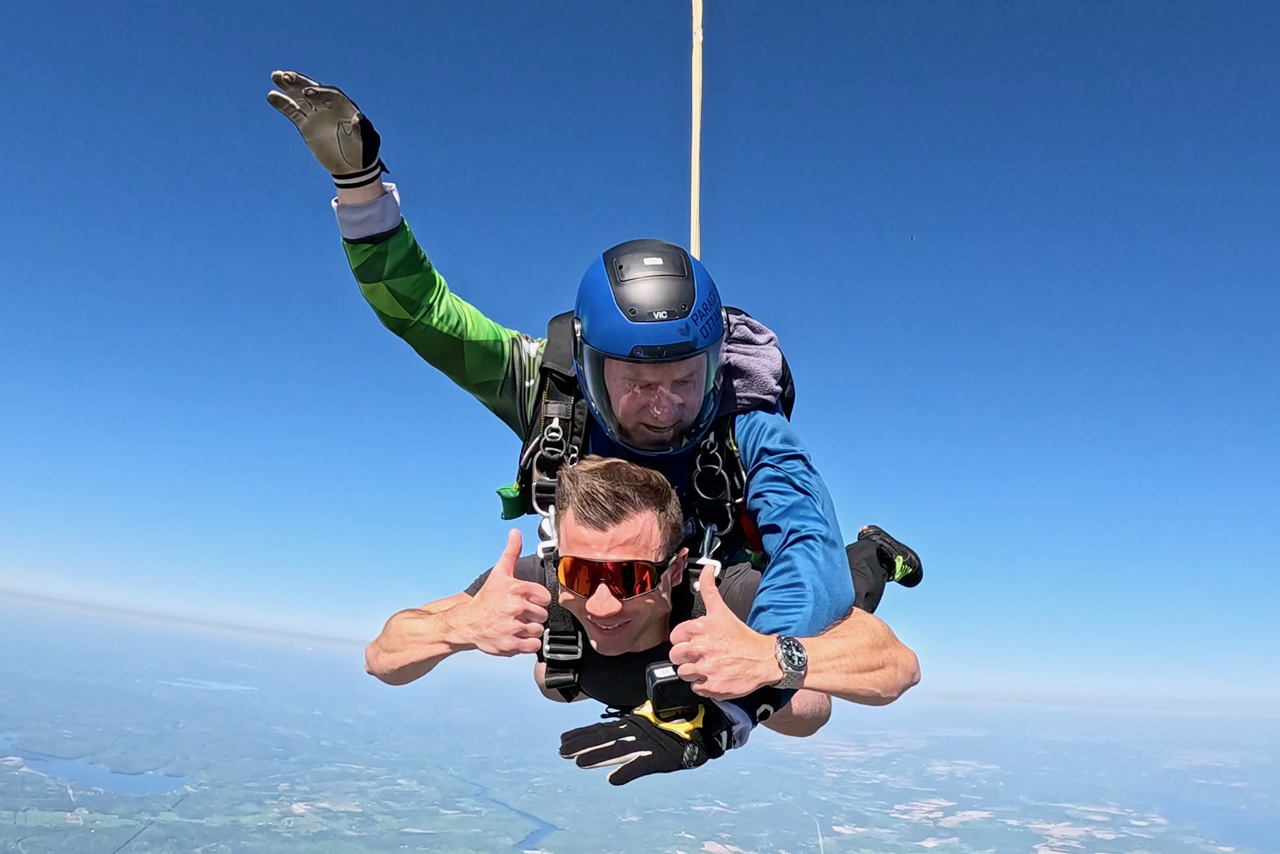
After all this talk of weather, you might be wondering what day of the week is best to skydive, or even what hour is best for skydiving.
The day of the week depends entirely on your schedule, of course! However, weekdays are often less busy than weekends, so we have more of an opportunity to reduce wait times when the weather perks back up. (Plus, you get a discount for booking on a Thursday or Friday!)
And there is a best time to skydive: early morning. Not only is it less busy earlier in the day, but you’re more likely to have agreeable weather in the summer. In the morning, the air is typically cool and smooth – and the lighting makes for picture-perfect views and skydiving video. If the wind is going to pick up, it’s most likely going to happen as the day goes on. Clouds and storms tend to build throughout the day.
We can’t predict the weather, but we do know you’ll have a phenomenal experience when you do skydive. Book your jump and, if the heavens have you wondering, give us a call! We’re here to support you.
